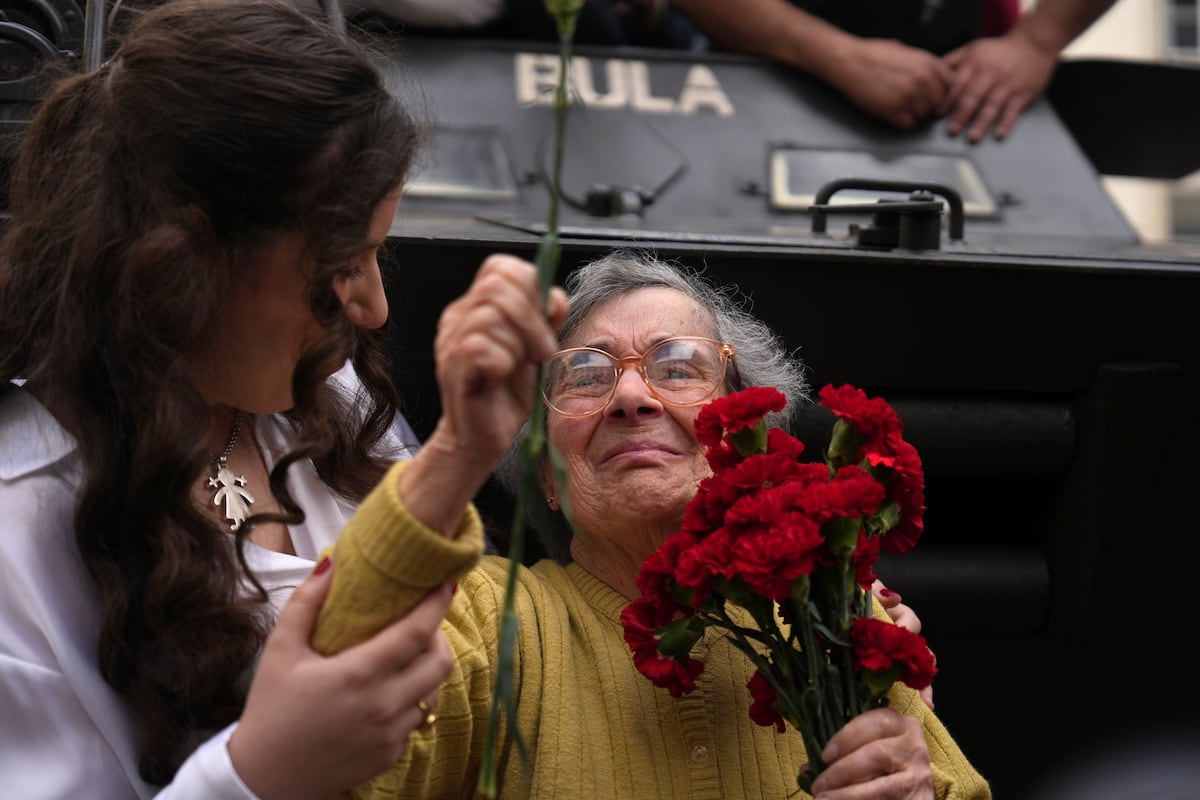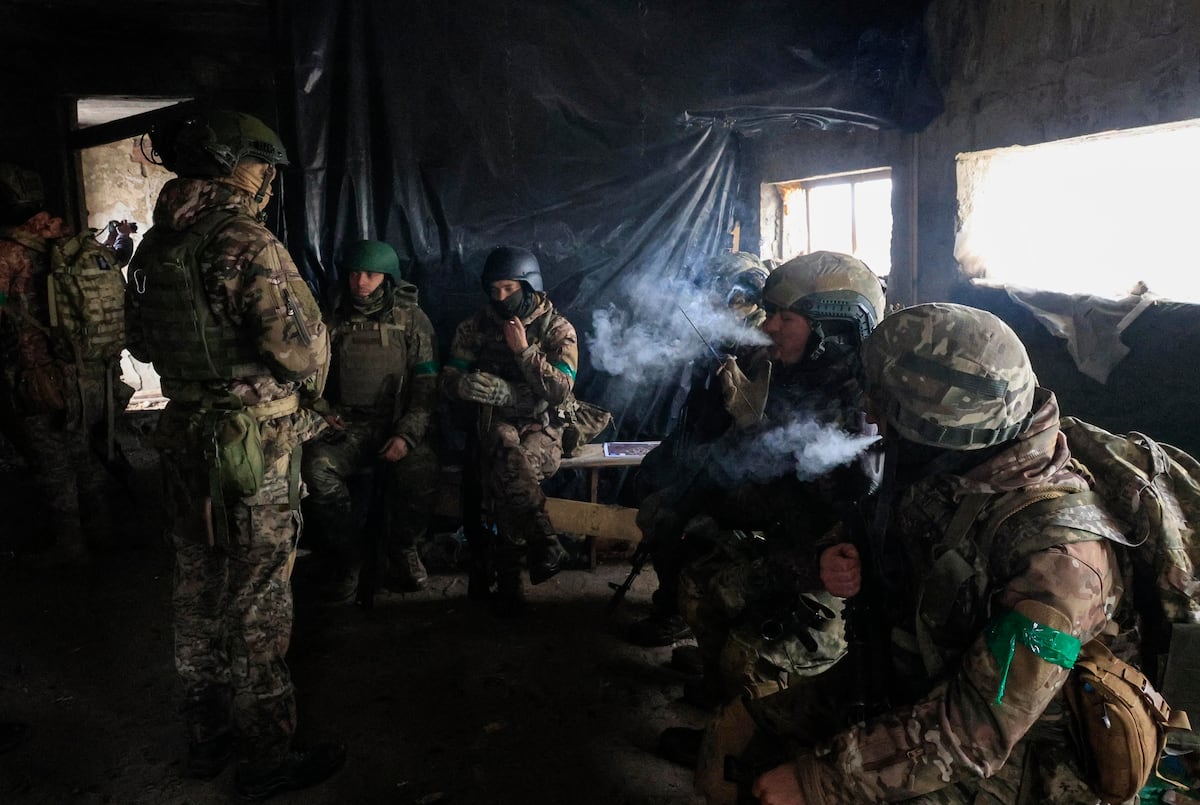The waitress who unknowingly baptized the Carnation Revolution 50 years ago, Celeste Caeiro, died this Friday in the hospital in Leiria (Portugal) due to respiratory failure. She received a miserable pension, which made her go through the same hardships as a retiree that she went through during her active life as a single mother. He was 91 years old and never received an official tribute. There was one in progress, approved unanimously this year by the Lisbon City Council, to create an intervention in his memory in some public space in the city, but Caeiro died without having seen it. At that event he was awarded the Lisbon Medal of Honor, the only distinction awarded to him in half a century.
His gesture of distributing carnations among the soldiers who had revolted against the dictatorship had both chance and poetry and quickly became the perfect symbol to baptize that revolution marked by its pacifism. The forgetfulness of Celeste Caeiro perhaps reveals better than any other the amnesia of Portuguese democracy towards those people who with gestures – big ones like taking up arms or small ones like distributing flowers – made it possible for that day to become the almost perfect revolution, with hardly any violence or revenge. His story is collected in the documentary Celeste two Cravosreleased this year within the commemorations of the 50 years of the Portuguese revolution.
In 1974 Celeste Caeiro, who would end up joining the Portuguese Communist Party, worked at the Franjinhas restaurant, near Marqués de Pombal Square, in Lisbon. On Thursday, April 25, the business celebrated its first anniversary and the owner had bought flowers to distribute to the tables. When the employee arrived at the establishment, the boss explained that he had decided not to open due to the events that were unfolding in the city. Several military units had moved from different locations and taken strategic places in the Portuguese capital. The coup d’état, carried out mainly by middle managers of the army who were tired of fighting in three colonial wars in Africa, triumphed in a few hours. Celeste Caeiro returned home with the bunches of carnations.
At Rossio Square he met soldiers from the column of the Santarém Practical Cavalry School, who had traveled almost a hundred kilometers that night to take strategic institutions in the center of Lisbon under the command of Captain Fernando Salgueiro. Maia. Caeiro said years later that he asked one of the militiamen what they were doing and that he replied that they were going towards Largo do Carmo, where the dictator Marcelo Caetano was taking refuge. The waitress asked him if they needed anything and he asked her for a cigarette. “My grandmother doesn’t smoke, she never smoked, she looked around because there was a tobacconist, but it was early and it was still closed. Out of pity for him and so as not to leave him with nothing, she told him that she didn’t have a cigarette, but that she had a carnation. The soldier took it and placed it in the mouth of his rifle,” Carolina Caeiro Fontela, granddaughter of the protagonist, recalled in an article published on May 2 in the local newspaper. Or Alcoa.
He then distributed the rest among the other soldiers, including Manuel Correia da Silva, a sergeant who would end up guarding Marcelo Caetano hours later in the armored vehicle in which he left the Do Carmo barracks after renouncing power. “Then they only talked about red carnations, but I remember that I also had white carnations,” Correia recalled a little over a year ago in an interview with Morning Express.
At the demonstration held this year in Lisbon to commemorate the 50th anniversary of the revolution, Celeste Caeiro once again distributed carnations from the wheelchair pushed by her granddaughter. He took photos with the military and with some of the tens of thousands of people who took to the streets to remember the day that restored their freedoms after almost half a century of dictatorship. In May he also went to see a Sporting match, his favorite club, shortly before a popular fundraiser promoted by his granddaughter on social networks allowed him to buy new hearing aids. The precariousness in which he lived was a constant in his life. “But you always rolled up your sleeves and overcame everything,” Carolina Caeiro Fontela stressed in that article.
Celeste Martins Caeiro was born on May 2, 1933 in Lisbon. When the April military uprising occurred, he lived with his daughter and mother in the street do Carmo. That house would burn a few years later during a fire, which would leave it on the street with nothing. Despite all the material obstacles he faced, he did not embrace resentment. Her main legacy, according to her granddaughter: “You taught me from a young age that I should be what I want, that no one should ever decide for me and much less can silence me because we all have something important to contribute.”








